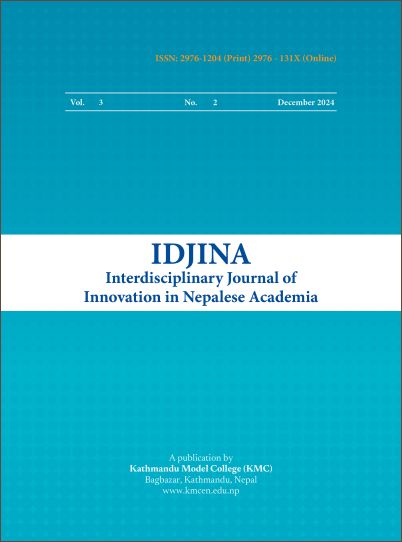Self-Compassion and Spiritual Well-Being Among Employees in Educational Institutions
Keywords:
Educational institutions, employee well-being, self-compassion, spiritual well-being, stress managementAbstract
This study investigates the relationship between self-compassion and spiritual well-being among employees of educational institutions in the Kathmandu Valley. A descriptive research design was adopted, utilizing convenience sampling to collect cross-sectional data from 171 respondents via an online Google Form. Data analysis was performed using correlation and chi-square tests in SPSS version 23. The results indicated that most respondents demonstrated high levels of self-compassion and spiritual well-being, with no significant differences across demographic factors. A moderate positive correlation of 0.514 was found between self-compassion and spiritual well-being. In terms of self-compassion, mindfulness ranked highest, followed by self-kindness, with common humanity ranking lowest. Regarding spiritual well-being, the communal domain ranked the highest, followed by the environmental, personal, and transcendental domains, respectively. It is recommended that educational institutions focus on these high-ranking factors to enhance employee satisfaction.
Downloads
Downloads
Published
How to Cite
Issue
Section
License

This work is licensed under a Creative Commons Attribution-NonCommercial-NoDerivatives 4.0 International License.
This license allows reusers to copy and distribute the material in any medium or format in unadapted form only, for noncommercial purposes only, and only so long as attribution is given to the creator.




